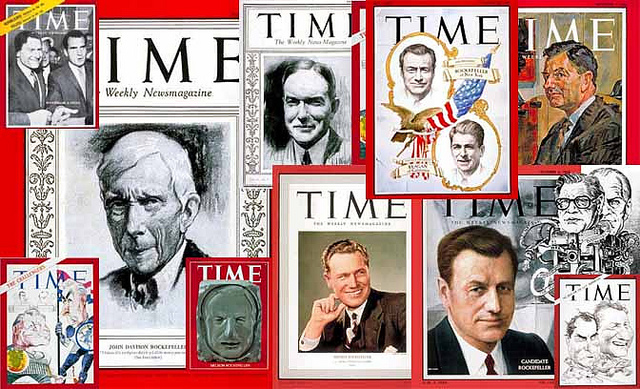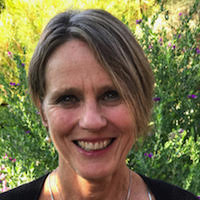Nine-thousand feet up Mount Shasta during a late summer climb, I was surprised to hear the sound of a cell phone.
I’d thought I was blissfully removed from contact with the rest of the world—and no contact meant no reading the news and feeling all the emotions that come with that these days. However, with that ding!, I realized I could now take a peek.
But for one wonderful week with my children, I continued to resist—simply climbing, hiking, swimming, and falling asleep under spectacular skies and mountain peaks. It was idyllic.
On the way home, however, we stopped for lunch at the Hi-Lo Cafe in a town called Weed, and it was there that I succumbed to my phone while waiting for a B.L.T.
It was the second day of the Charlottesville rally by the so-called alt-right: white nationalists, white supremacists, and neo-Nazis. With torches reminiscent of the Ku Klux Klan, fiercely racist and homophobic chants, and violence culminating in the death of one and injury of 19 others, it was all an alarming, surreal reminder that America’s greatest conflict has never been entirely resolved.
Yet that was not the lead story. The one that trumped it was of the president’s response. In moments of crisis, we look to presidents to speak words of moral leadership that heal and appeal, in the words of Abraham Lincoln, to the better angels of our nature.
But the words the President spoke were as shocking as the event.
It was a jarring re-entry from America the beautiful to America the ugly—a public square where people from backgrounds both high and low now speak freely with hatred, dividing us and diminishing us more with every foul word. And it made me register that we are in this for the long haul—certainly, longer than most of us want. So how do we survive it? That is, what can we do now that will allow us to still recognize ourselves as Americans when this is over—perhaps even become better, more understanding people as a result?
Here are three strategies that may help.
1. Think about the news like food—or, more directly, limit your news intake.
On the face of it, this might seem highly irresponsible. Many of us, after all, feel more glued to the news now than ever before because so many things that make America great are coming under attack. Limiting your news might seem tantamount to hiding your head in the sand—or, worse, making it easier for those doing the damage to keep on doing it.
But what if that’s not true? What if making more deliberate choices about the news will make you more capable of doing something useful in the world?
To briefly back up from the present moment: For the past 40 years, we have been exposed to more news than we can possibly keep up with. It began with the introduction of 24-hour news in 1980, continued with the internet in 1984 (which now hosts more than 644 million websites), and has expanded exponentially in the early part of this century with the rise of social media and mobile devices.
The result: There is no keeping up. Nor should there be. Our brains are not wired for this. News also, by and large, tells stories about things gone wrong, people not behaving as they should, life events that are out of the ordinary. Pummel yourself with this kind of negativity day in, day out, and it’s hard to imagine how it will lead to a positive result.
Rolf Dobelli, author of The Art of Thinking Clearly, has suggested that news is to our minds what sugar is to the body. In an essay on the topic, he discusses 16 dangers of an excessive news diet and what to do about it. Three of these especially persuaded me that limiting our news intake, especially in these times, may be one of the most responsible things we can do.
>> First: News systemically misleads us because it does not represent the real world. “It’s not ‘news facts’ that are important,” he writes, “but the threads that connect them. What we really want is to understand the underlying processes, how things happen. Unfortunately, precariously few news organizations manage to do this. The problem is that the underlying processes that govern significant social, political, and environmental movements mostly are invisible. They are complex, non-linear, and hard for our (and the journalists’) brains to digest.”
>> Second: News is toxic—to our bodies, as the limbic system is triggered into a state of chronic stress; to our psyches, which is hit with horrific images; and to society, which becomes more polarized, as extreme positions are contrasted and narrowcast news streams cater to pre-existing beliefs. On this, Dobelli notes that news perpetuates the brain’s confirmation bias, or tendency to look for information that confirms what we already believe (whether true or not), making us into shallow, less creative thinkers. It also steals time. Consider how many hours and days have you lost to the news since Election Day. And to what end? Outrage without constructive action is pointless.
>> Third: News makes us passive. “News stories are overwhelmingly about things you cannot influence,” Dobelli writes. “This sets readers up to have a fatalistic outlook on the world.” Our ancestors, he suggests, could act upon what they learned but “the daily repetition of news about things we can’t act upon makes us passive. It zaps our energy. It grinds us down until we adopt a worldview that is pessimistic, desensitized, sarcastic, and fatalistic.” We develop what psychologist Martin Seligman called “learned helplessness.”
In this context, limiting your news intake is not an abdication of civic responsibility but a commonsense solution to negative news overload. It also doesn’t mean tuning out completely and retreating to a mountaintop (though that might be nice.) It means taking responsibility to make good choices. Instead of reading moment-by-moment updates about unfolding events, Dobelli advocates reading books and magazines (such as The Atlantic and The New Yorker) that try to explain them. Many thoughtful online sites and podcasts do the same.
The idea is this: think about your news diet as you might your food diet, and be smart about what you ingest.
2. Commit to something.
Over the past many months, there has been an outpouring of resistance to the attacks on America’s better nature that has been truly inspiring—from the newly engaged citizens at town halls to the thousands of people who have been showing up at rallies in Boston, San Francisco, and elsewhere. But most days, most of us simply take in the news while going about our busy work and family lives. Fear, anxiety, and anger arise—and seek an outlet.
Several times this year, I have read the news at work and, feeling all worked up, walked into a co-worker’s office to vent, to discuss, to analyze, to commiserate—never—not once—feeling better as a result. Other times, I have headed home after taking a quick glance at the headlines or Twitter feeds and been so caught up in reaction to the latest attack on our social fabric or backsliding on climate action, I barely see the people on the street walking beside me or leaning against a pole at the corner, desperate for money.
How, I have to ask myself, is this helpful? The honest answer is, it isn’t.
But committing to something is helpful. Commit to something reasonable and something you can stick with. You don’t need to try to save the world. In fact, you can’t save the world. So free yourself of that onerous fallacy. But there are plenty of problems you can help address. Simply pick one, and try to do a little good there.
Ideally, what you do will involve real interactions with other people and not be limited to signing petitions or posting messages on Facebook (though those things are important, too). In good times but ever more in bad, we need to connect with other people. It strengthens us and keeps us going; and there are lots of ways to do it. Maybe it’s protesting. Maybe it’s volunteering with the homeless, the elderly, or with refugees. Maybe it’s cleaning up a beach, or your elderly neighbor’s backyard. What it is doesn’t actually matter much—at least, not as much as that you choose something and do it.
Doing so potentially achieves two things: it might help someone else, and it quite likely will help you by returning to you a sense of what psychologists call the “locus of control.” When we believe that external forces (such as those we read about in the news) are the primary influences on our lives, we tend toward unhappiness and inaction. When we recognize that we have a great deal of influence on our own lives, no matter what happens externally, we are more likely to feel good—and when we feel good, we are more likely to do good.
3. Fortify yourself with goodness.
After my return from Shasta to the news of Charlottesville, I struggled for several days. The peace I’d enjoyed on the mountain was increasingly squeezed out by darker emotions. I was angry at the damage being done by a man The New Yorker’s David Remnick recently described as a “dishonest, inept, unbalanced, and immoral human being” who we elected president and Commander-in-Chief. I was afraid of the cruelty being unleashed through implicit and explicit validation. And I was anxious about where this unrest would lead.
Only three days back from vacation, these feelings consumed my mind and heart like a fever I could not shake. But I could not live with them either. Over a prolonged period of time, negative emotions make us physically sick, shut down, or act out. So how, I wondered, do we carry on, maintaining some peace of mind despite the turmoil around us?
Then a funny thing happened while walking down the streets of San Francisco: the smiling face of the Dalai Lama came to mind. I pictured him getting up at three in the morning and, in his usual habit, meditating and reciting prayers for five hours, as Douglas Abrams writes in The Book of Joy, a conversation between His Holiness and Archbishop Desmond Tutu.
Instantly, I felt a sense of relief. It was not, to be sure, because I imagined I would or could follow in the Dalai Lama’s footsteps. It was because the fact that someone as wise as him spends that much time in daily meditation and prayer reminded me that we all need to be fortified with goodness. Whether it comes from nature, meditation, religion, family, friends, books, art, music, or something else, we all need a little extra goodness now.
The more hatred there is, the more we need to fortify ourselves with love. The more conflict, the more we need acts of kindness.
So who knows? Maybe all this turmoil in America will lead to something good if it inspires us to make healthier decisions about how much negativity we expose ourselves to, commit to doing something helpful, and fortify ourselves with goodness. Maybe, just maybe, these things will help us through the resistance and, more importantly, the resurgence of an America we know and love.
~
~
Author: Lisa Bennett
Image: AK Rockefeller/Flickr
Editor: Callie Rushton
Copy Editor: Travis May
Social Editor: Yoli Ramazzina

 Share on bsky
Share on bsky







Read 0 comments and reply